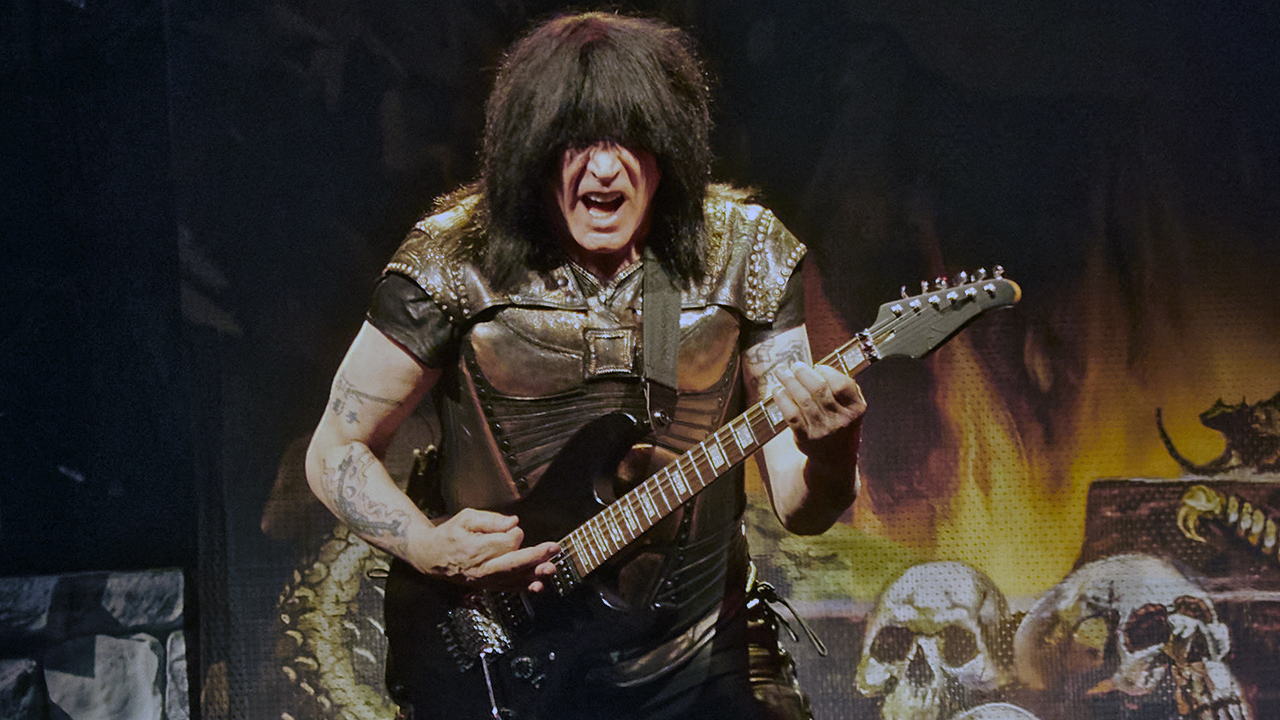“One promoter just bailed… So we stole his PA and sold it for gas money”: The life and times of infamous Philly punk icons Ink & Dagger
With a comprehensive retrospective announced via Trust Records, and the band back in session, Don Devore returns to the Ink & Dagger story and the “psychedelic hardcore” sound that made them
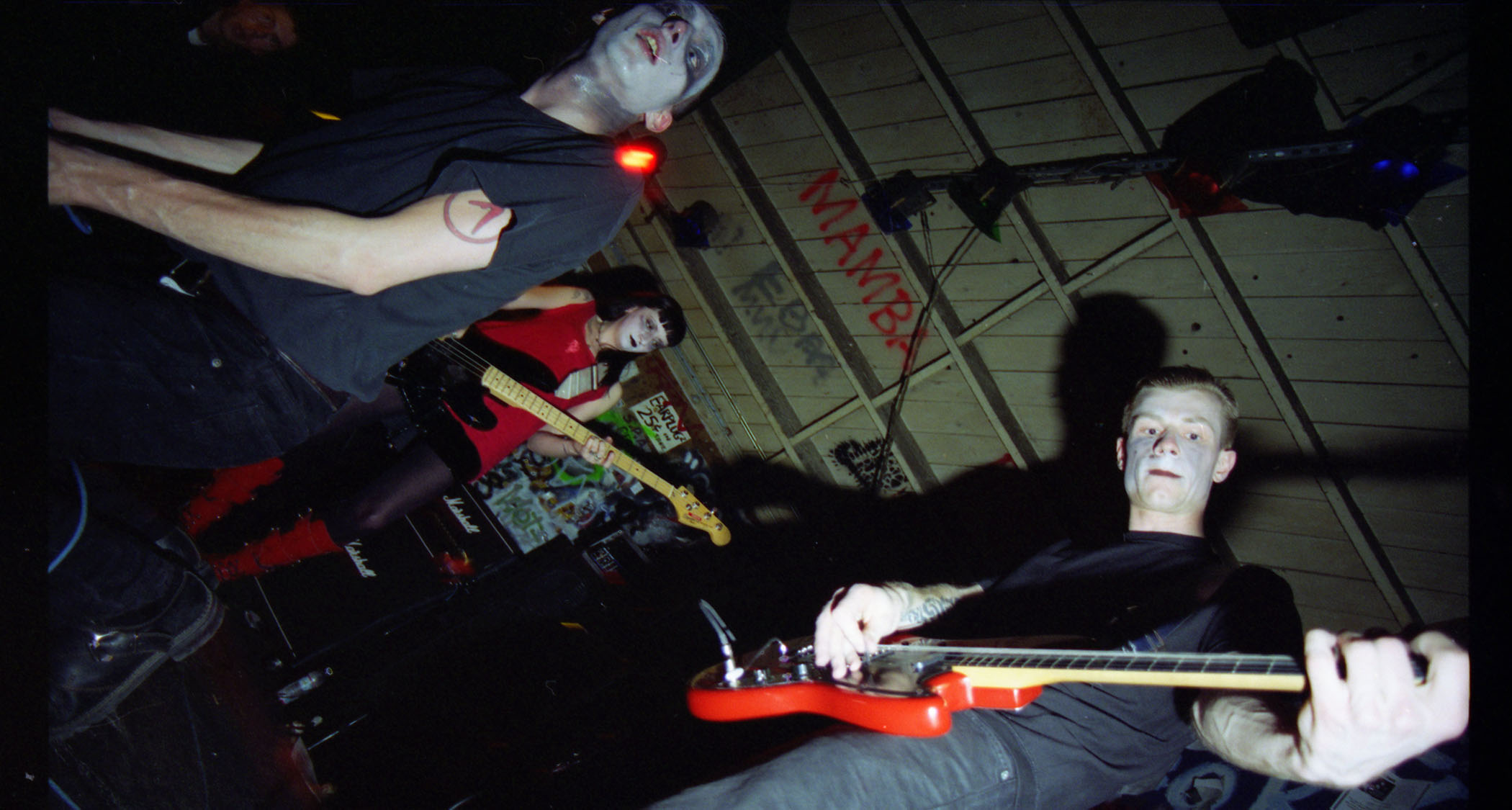
All the latest guitar news, interviews, lessons, reviews, deals and more, direct to your inbox!
You are now subscribed
Your newsletter sign-up was successful
Don Devore’s 2025 was filled with full circle moments. In February, the Pennsylvania-raised guitarist’s teenage hardcore band, Frail, began playing shows around the U.S. – their first since the mid ’90s.
Then this past October, he reunited with cult Philly outfit Ink & Dagger – the self-proclaimed “psychedelic hardcore” group whose mesmerizingly eerie melodies, frantic punk underpinnings and theatrically macabre vampire aesthetic made them infamous within the ’90s underground.
Fittingly enough, those shows – their first in nearly 15 years – gave the quintet a chance to lurch back into a shadowy cut called Full Circle. Yet while the sets featured familiar cues, Devore says he's prone to going off-script with his circuitous leads.
“A good show for me, I make up all new shit,” he told Guitar World a month ahead of the Philly concerts. “Some people might do that and you're like, ‘Oh my god, would you just play the fucking parts?’ This [is] more like, ‘Tell me the new shit I played that night wasn’t better?’”
The band’s return is connected to the release of Ink & Dagger: The Complete Works – a comprehensive four-record box set issued through punk archivists Trust Records. Like Devore’s lead style, the throughline to Ink & Dagger – which he’d formed in 1996 with late founding vocalist Sean McCabe – was a spirit of confident, constant reinvention.
Musically, they were inspired by anything from D.C. hardcore act Swiz, to the hypnotically druggy Spacemen 3, to the electronic amorphism of Aphex Twin. Early on, they’d sunk their teeth into lyrical motifs around bloodlusts and graveyard dangers, and established their community-building Philadelphia Society of Future Vampires through liner notes manifestos. Concerts were coated in ghoulish face paint and fake blood.
While outwardly campy as a Hammer Horror classic, Devore maintains the point was less about creating a creepy atmosphere than it was about driving a stake through the heart of human complacency and artistic stagnation – of “doing whatever you want” in the name of entertainment and self-empowerment.
All the latest guitar news, interviews, lessons, reviews, deals and more, direct to your inbox!
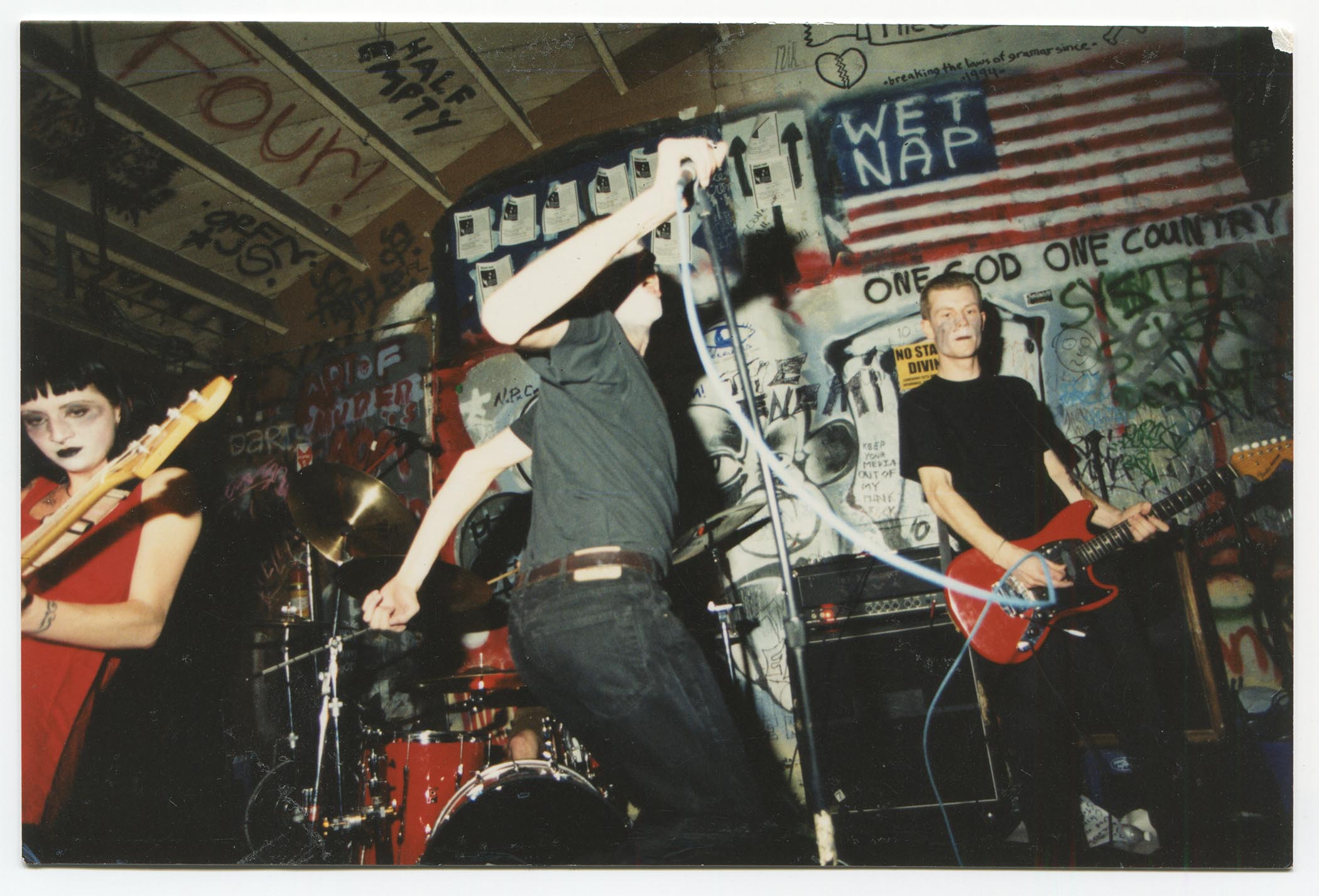
“The idea of reinventing yourself into [becoming] your perfect being – whatever that may be – it was all in that metaphor of the vampire,” he muses. “It was really just a delivery method to say all these things. At the end of the day [it was about] self-expression, self-reliance, and having the techniques to get into that.”
The idea of reinventing yourself into [becoming] your perfect being – whatever that may be – it was all in that metaphor of the vampire,
Devore recalls getting his musical start on his father’s old acoustic, upon which he started smashing out unplugged Minor Threat covers using a quarter as a pick (“That's definitely what gave me a really strong right wrist”). Later, he’d develop a more delicate fingerboard finesse while spectrally strumming a red Charvel beneath his bed covers at night.
By the early ’90s, Devore co-founded Frail, a straight edge hardcore band whose music denounced racism and homophobia, and called for personal and political change. There, the guitarist’s feel evolved from efficiently open E-chugged grooves towards chaotically spiraling octave melodies and hauntingly unresolved chord voicings.
He ended up bringing those unstable choices to his next project, the Mandela Strikeforce – also featuring McCabe – and eventually into Ink & Dagger. While still rooted in hardcore, Devore was driven to push Dagger’s riffs beyond basic blunt-edge heaviness.
One go-to trick of his – as heard on the menacing Frigid Shortcomings and the oddly emo-balladic My Ladylove – was to add harmonic tension while barring-out power chords with extra, disquietingly suspended low notes on the sixth string.
“I've never really liked any kind of metal. Heavy means something a little different to me,” he says. “I'm one of those people that thinks a thick F chord is heavier than any down-tuned bullshit, you know what I mean?”
For their first pair of vinyl singles, 1996’s Love is Dead and 1997’s Drive This Seven Inch Stake Through My Philadelphia Heart, Devore and co-guitarist Jorge Gonzalez vaulted pulse-panicked chord pivots, hypnotic trem bends and sevenths-spiked arpeggiation off Mustangs and Jags running out of Sovtek Mig 100s and JCM800s. On the aforementioned Full Circle, Devore’s uncouth lead accents on the gothic romp colored way outside the norm, though on purpose.
“I’m just putting some whacked-out shit in to turn it around,” he explains. “I would see that as a song arrangement-type move, so the listener doesn't know what's coming. It’s not weird counts…but it’s shit to keep you on edge, you know?”
The energetic fanfare around the group’s early performances also sent chills through the hardcore circuit – building a mythos while the act entered venues in hand-built coffins, or while spraying down crowds with fake blood mixtures of soda water and food dye. Off-stage, their rep was even messier.
During an era of fanzine gossip and early online chatter, rumors swirled of Ink & Dagger being anything from belligerently gimmicky bloodsuckers, to venue vandalizers, to insidious gear thieves.

Devore myth-busts some reported outlandishness – they didn’t set a Christmas tree on fire on-stage, but did get pelted with garlic at a festival. He confesses they boosted someone’s audio equipment one tour, though more as a point of honor and practicality.
One promoter just bailed… So yeah, we stole his PA and sold it for gas money. We would never do anything nefarious with anyone – but, you know, it's a crazy world out there
“We were fucked-up kids from Philly that were up to all kinds of wild stuff – and surviving,” he sums up of the Philapsychosis they sung of on-record, and brought with them on the road.
“One promoter just bailed [from a show and took] all the money. So yeah, we stole his PA and sold it for gas money… [that] was totally reasonable. We would never do anything nefarious with anyone – but, you know, it's a crazy world out there.”
At a brawling 1999 gig in Vancouver, BC, Devore pounced off the stage – with his guitar still strapped on – to protect showgoers being targeted in the pit by a pack of punitively meatheaded moshers.
While chivalrous in concept, this move immediately backfired. “For the next 20 seconds, [one of them] beat my ass. Like, it didn't go good. But as soon as my dudes saw what was going on, Dan Murphy – who was doing our lights – broke his wrist on the guy,” he says. The band had long evolved past wearing stage makeup by this point, but the guitarist finished the show with a viciously bloodied nose.
Devore and McCabe were the only mainstays through Ink & Dagger’s original run. Gonzalez exited the group following a few EP releases, and the act ran through a number of drummers and bassists.
Love is Dead featured rhythm-stringing from Eric Wareheim, who’d previously performed in emo-hardcore unit Elements of Need and would go on to become an absurdist comedy icon via sketch program Tim & Eric Awesome Show, Great Job.
Other temporary bassists included Ashli State (Guilt) and live fill-in Gregg Foreman (Delta 72, Cat Power), but Devore eventually settled into a rhythm with Joshua Brown (Crud is a Cult), who brought an elliptical grooviness to the faction’s two full-length releases: 1998’s The Fine Art of Original Sin and 2000’s posthumously delivered self-titled album.
With Fine Art, Ink & Dagger transcended hardcore to explore elements of hard psych, dread-dripping trip-hop and cyber-punk experimentalism – not entirely unlike the subversive approach Sweden’s Refused took on that year’s The Shape of Punk to Come.
Those parallel thoughts put the bands on each other’s radars, Devore noting that mutual friends jokingly tried to pit the acts against each other in some kind of twisted avant-hardcore arms race. Instead, Devore ended up traveling to Umeå to try out for Refused when he found out they needed a bassist.
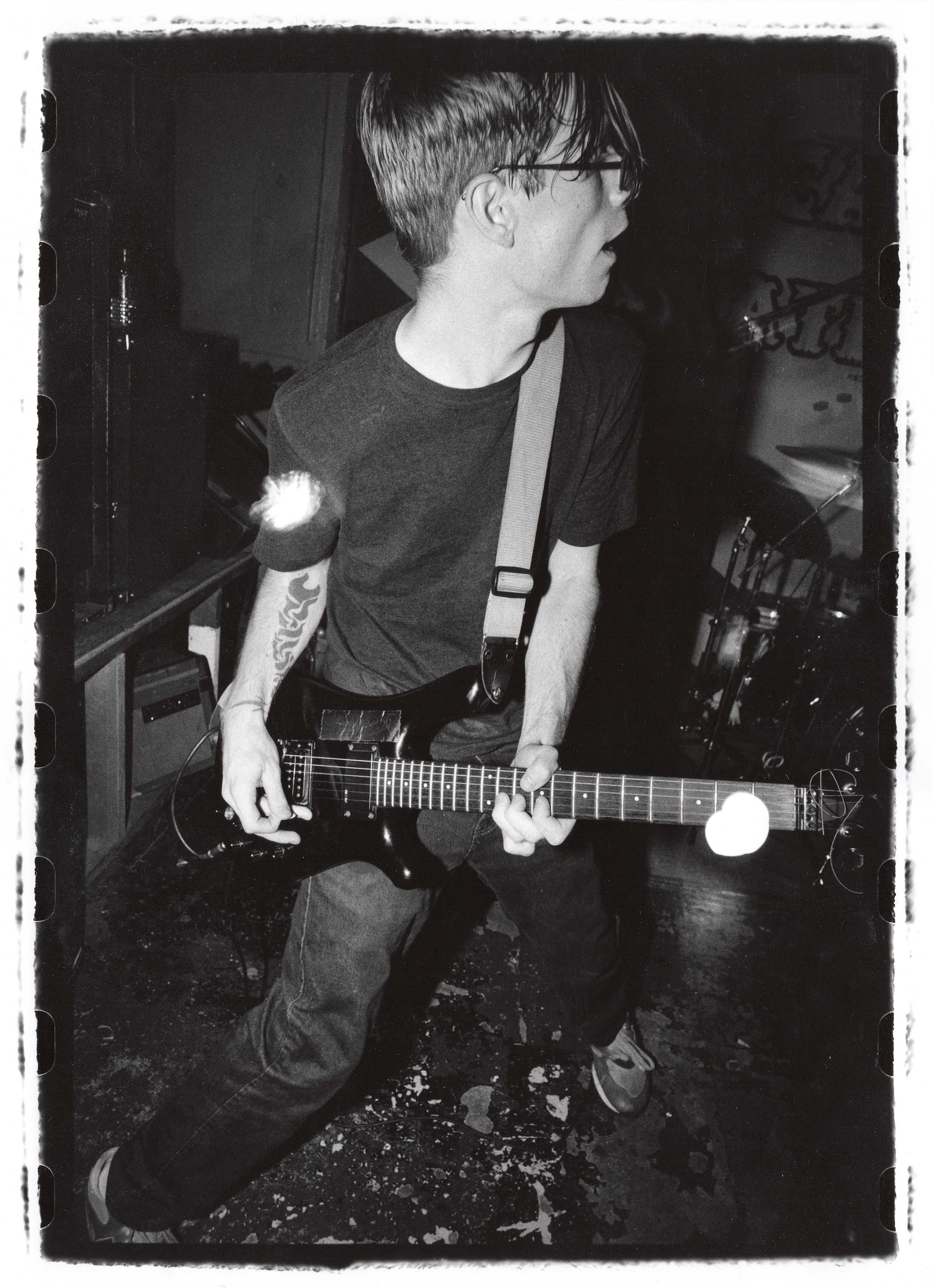
“I went to Sweden for a couple months and became lifelong friends with those guys. We jammed a bunch, but they were like, ‘Alright, newsflash: we're gonna break up. So instead of you moving your whole life here, how about Ink & Dagger does our last tour in Europe?’ That’s how that happened, and it was great.”
Recorded as a quartet, Ink & Dagger’s self-titled swansong found them intensifying a dangerously debauched brand of nocturnal psychedelia. Devore double-tracked and hard-panned competing lead lines that could occasionally line up for a few measures.
That mercurial spaciness only increased in a live setting, where – inspired by a Bob Mould setup he’d read about – the guitarist began running a pair of half-stacks on each side of the stage, coursed a stereo delay between them, and roared through different tone-blurring effects from each rig.
Songs became marked with a profoundly lysergic dynamism, bassist Brown occasionally taking the lead on dark-hued blues explosions (Sweet Relief of Revenge) while Devore dabbled in Hendrixian chord shapes and hallucinogenic shoegaze arrangements (Sarcastic Sunrise).
Sadly, vocalist McCabe passed away in 2000, ending Ink & Dagger’s initial run. They’d briefly reunite through 2010-11, but with Thursday’s Geoff Rickly manning the mic. This past fall, the trio of hometown shows brought Devore together with Brown, Gonzalez, Rickly and original drummer Dave Wagenshutz.
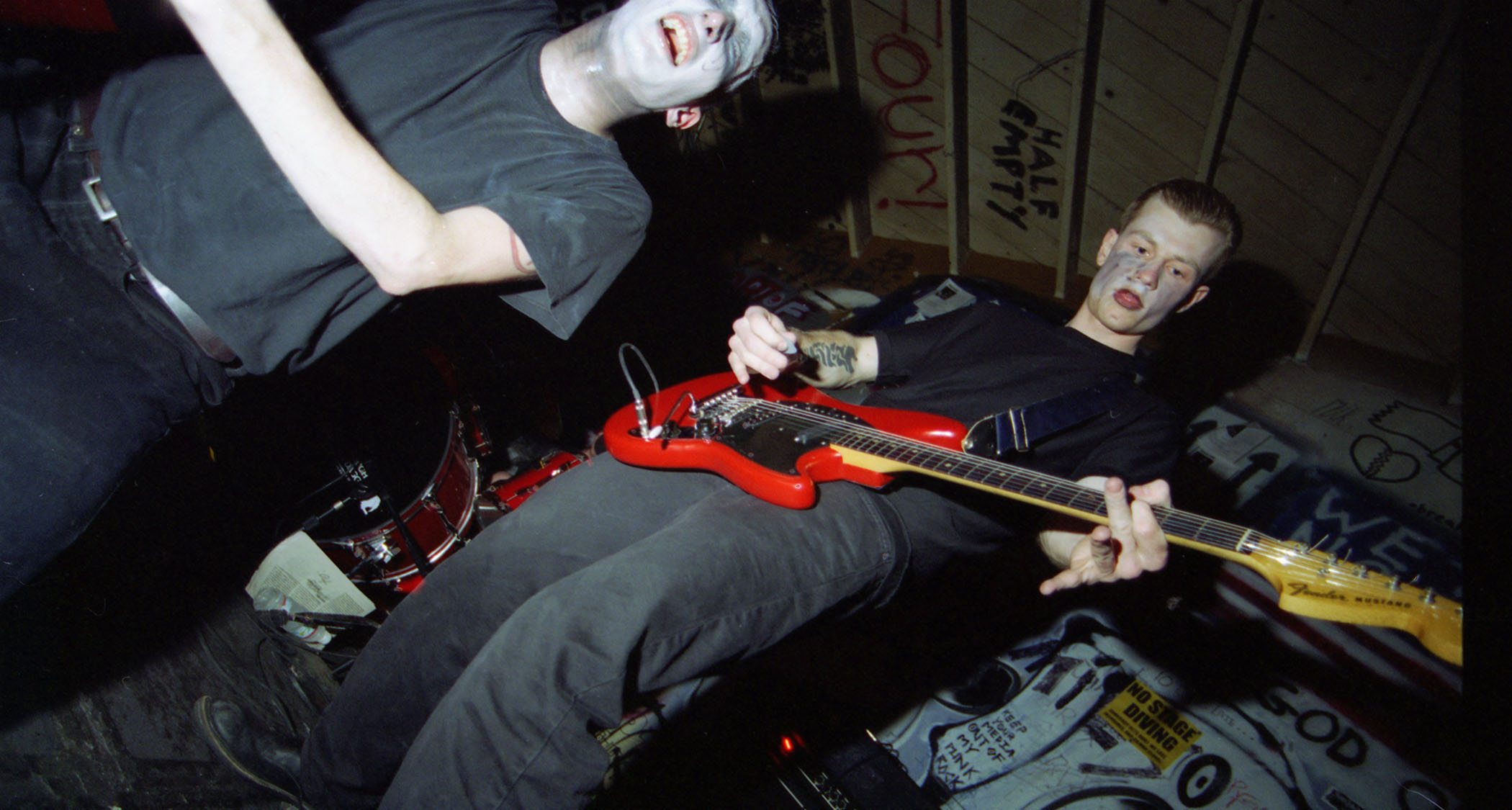
Devore’s vast discography also includes music with hazy shoegazers Lilys and nihilistically sleazy post-hardcore outfit the Icarus Line, though he’s most recently delivered mind-bending solo works and albums with genre-imploders Collapsing Scenery.
Though it’s run the gamut of expression, his off-kilter melodic sensibility carries through – invoking perhaps the spirits of both reinvention and reincarnation. “I've worked on hip-hop, country and everything in between, at various levels, [but] I like to think – no matter what it is – it sounds like something I'm involved in.”
- Ink & Dagger: The Complete Works is out on March 2026 via Trust. Find out more at Trust Records.
- This article first appeared in Guitar World. Subscribe and save.
Gregory Adams is a Vancouver-based arts reporter. From metal legends to emerging pop icons to the best of the basement circuit, he’s interviewed musicians across countless genres for nearly two decades, most recently with Guitar World, Bass Player, Revolver, and more – as well as through his independent newsletter, Gut Feeling. This all still blows his mind. He’s a guitar player, generally bouncing hardcore riffs off his ’52 Tele reissue and a dinged-up SG.
You must confirm your public display name before commenting
Please logout and then login again, you will then be prompted to enter your display name.


